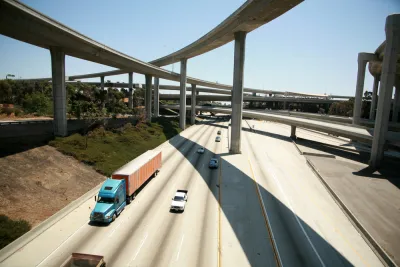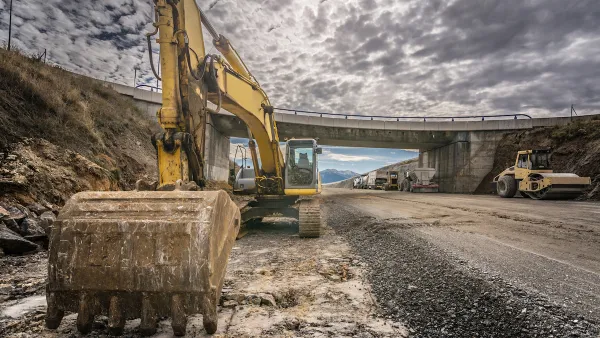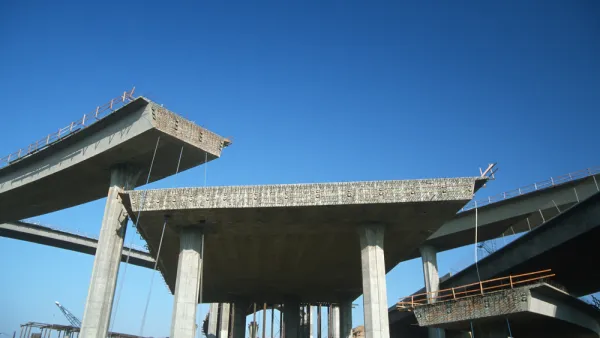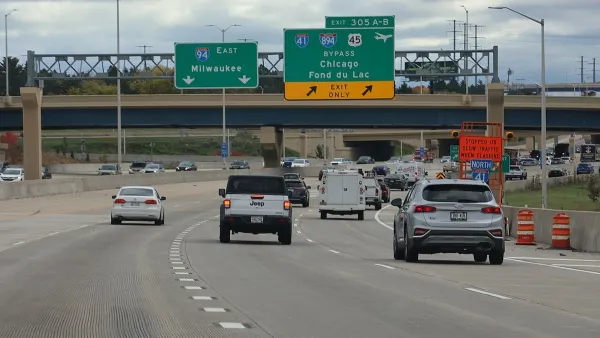The tide may be turning—albeit slowly—against new road construction and expansion in favor of more climate-friendly alternatives.

While many transportation agencies continue to expand highways, some major cities are shifting away from building more roads, bucking decades of car-centric planning. As Jared Brey reports in Governing, a few isolated cases are raising hopes that highway expansion will no longer be the status quo.
In Denver, a new rule from the Colorado Department of Transportation requiring metro areas to measure their greenhouse gas emissions prompted the Denver Regional Council of Governments (DRCOG) to reconsider plans to expand Interstate 25, opting instead to “focus on safety and traffic flow improvements over making the road bigger.”
Another notorious project, the proposed expansion of the 710 corridor in Los Angeles—a key route from the ports of Los Angeles and Long Beach to distribution centers—was officially canceled this May after decades of activism from local communities who experienced harmful health effects. According to the article, “Community groups created their own alternative plan for the 710 freeway, which focused on clean-energy transport of goods, public transit, bicycle and pedestrian infrastructure, improvements to the L.A. River — and no new general-purpose traffic lanes.”
Unfortunately, Brey points out that Denver and L.A. are still exceptions to the rule, and billions in federal infrastructure funding are still being funneled to road expansion projects around the country. Planetizen recently highlighted the annual Highway Boondoggles report, which details some of the biggest and most wasteful highway expansion and construction projects in the nation.
FULL STORY: Why Denver and L.A. Are Backing Away from Highway Expansions

National Parks Layoffs Will Cause Communities to Lose Billions
Thousands of essential park workers were laid off this week, just before the busy spring break season.

Retro-silient?: America’s First “Eco-burb,” The Woodlands Turns 50
A master-planned community north of Houston offers lessons on green infrastructure and resilient design, but falls short of its founder’s lofty affordability and walkability goals.

Delivering for America Plan Will Downgrade Mail Service in at Least 49.5 Percent of Zip Codes
Republican and Democrat lawmakers criticize the plan for its disproportionate negative impact on rural communities.

Test News Post 1
This is a summary

Test News Headline 46
Test for the image on the front page.

Balancing Bombs and Butterflies: How the National Guard Protects a Rare Species
The National Guard at Fort Indiantown Gap uses GIS technology and land management strategies to balance military training with conservation efforts, ensuring the survival of the rare eastern regal fritillary butterfly.
Urban Design for Planners 1: Software Tools
This six-course series explores essential urban design concepts using open source software and equips planners with the tools they need to participate fully in the urban design process.
Planning for Universal Design
Learn the tools for implementing Universal Design in planning regulations.
EMC Planning Group, Inc.
Planetizen
Planetizen
Mpact (formerly Rail~Volution)
Great Falls Development Authority, Inc.
HUDs Office of Policy Development and Research
NYU Wagner Graduate School of Public Service





























